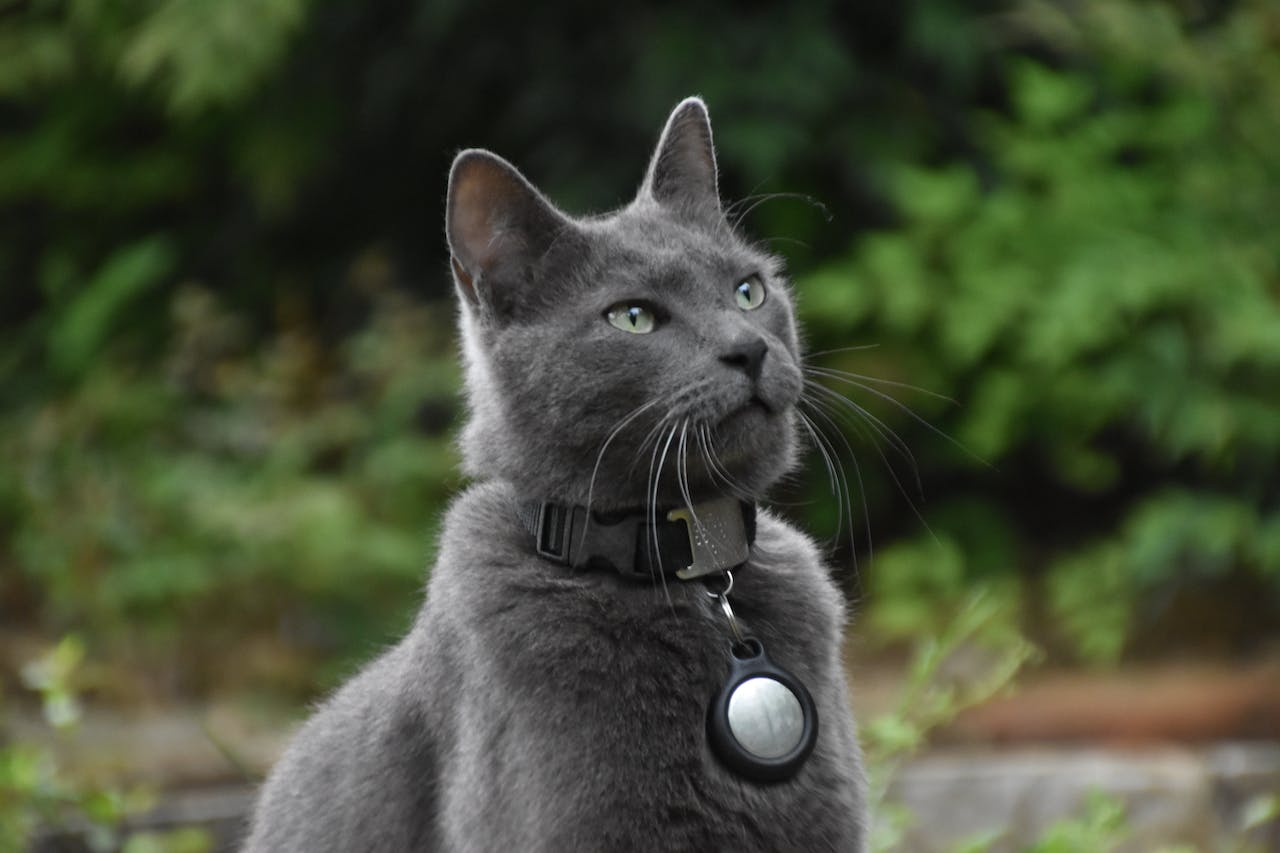Hailing from Russia and sporting a conspicuous blue coat, the Russian Blue cat is a gentle, quiet and cat around other people, but is loving and devoted towards her family. While there was no specific date when this feline was brought into existence, it is one of the oldest cat breeds and the first to be recognized by many cat associations. A great companion, this elegant and muscular fur ball gets along with children and cat-friendly pets. Otherwise, they will follow adults or even ride on their shoulders.
Origin of the Russian Blue Cat
Russian Blues’ roots are not exactly known, but many cat enthusiasts believe these felines first came to the UK in 1860 when British sailors brought them from Arkhangelsk port in Russia. Thus, earning them the nickname “Archangel” cats. The cat was a favorite among many royals and Russian czars and was then shipped across many parts of Europe.
These felines were among the participants in the earliest cat shows in England during the 1880s. In 1912, they were first named the Russian Revolution, before eventually called the Russian Blue. Today, the breed is recognized by The International Cat Association and the Cat Fanciers’ Association in the United States.
Physical Characteristics of the Russian Blue Cat
Length: 15 to 18 inches
Weight: 8 to 15 pounds
Life Expectancy: 10 to 15 years
Coat Color: Blue with silver edgings
Type of Coat: Short, fine, dense, and plush
Eye Color: Bright green
As their name suggests, Russian blue cats sport a short, plushy, elegant silvery-blue or grayish-blue fur, with a dense undercoat. They have a wedge-shaped head, with large, pointed ears sitting atop. Their almond-shaped eyes are striking, yellow as juveniles, turning into bright green color as they go into adulthood. The body is slender, with a long tail. Legs are long, with smallish oval paws.
Russian Blue Cat Personality
Russian Blues are renowned for being gentle, quiet, relatively timid cats. Nevertheless, they are loyal and sweet-tempered who would follow their owners around the house or ride on their shoulders.
Expect these cats to be sensitive, though. These furballs don’t like being ignored and may become fearful or anxious if not repaid with the same amount of love they give to their families. While they are affectionate to their owners, these cats may shy away from guests and hide during large gatherings in the house. Often, they will only go out if they decide they are worthy of the visitors’ notice.
While they sport a reserved nature, Russian Blues have their fun-loving side. They enjoy retrieving things or climbing to high perches, where they can observe their loving family’s activities. If they deem their owners are too busy, there isn’t much to worry about as they are pretty capable of keeping themselves amused. They are also sociable and can get along pretty well with kids and cat-friendly pets.
Russian Blues do best in quiet, stable homes. Often, they seek private nooks to sleep in and don’t like changes that much, be it from their surroundings or routine. So, it is best to get their meals on time. In return, they can be adorable alarm clocks that will wake their owners’ to a lovely morning.
Caring for the Russian Blue Cat
Russian Blues’ signature coat does not shed much, making it incredibly easy to care for, requiring only minimal grooming. Regular brushing twice a week can suffice in keeping it plush and silky.
Other parts of the grooming routine include brushing the teeth weekly to prevent them from getting periodontal disease, examining and cleaning their ears, and trimming their nails every couple of weeks. Bathing is rarely necessary as long as their fur is adequately groomed.
For their exercise needs, providing them a scratching post can help them get the stretching they need. Cat trees and high perches are also suitable investments given their inclination to climb. Toys are also handy, as Russian Blues can usually keep themselves entertained and exercise independently, making them perfect for owners with a relatively busy lifestyle.
The Russian Blue cats are very sturdy in terms of health, with not much breed-specific health issues or conditions. The only thing to watch out for is their hearty appetite, which can transform them from slender to fat felines, making them vulnerable to adverse effects relating to obesity.
Russian Blues are ideal for busy families looking for a gentle, reserved feline to add to their lovely homes. These cats know when their masters’ are busy and know how to keep themselves amused but will be happy to display their affection and warm up with their owners once they are already free to do so.

